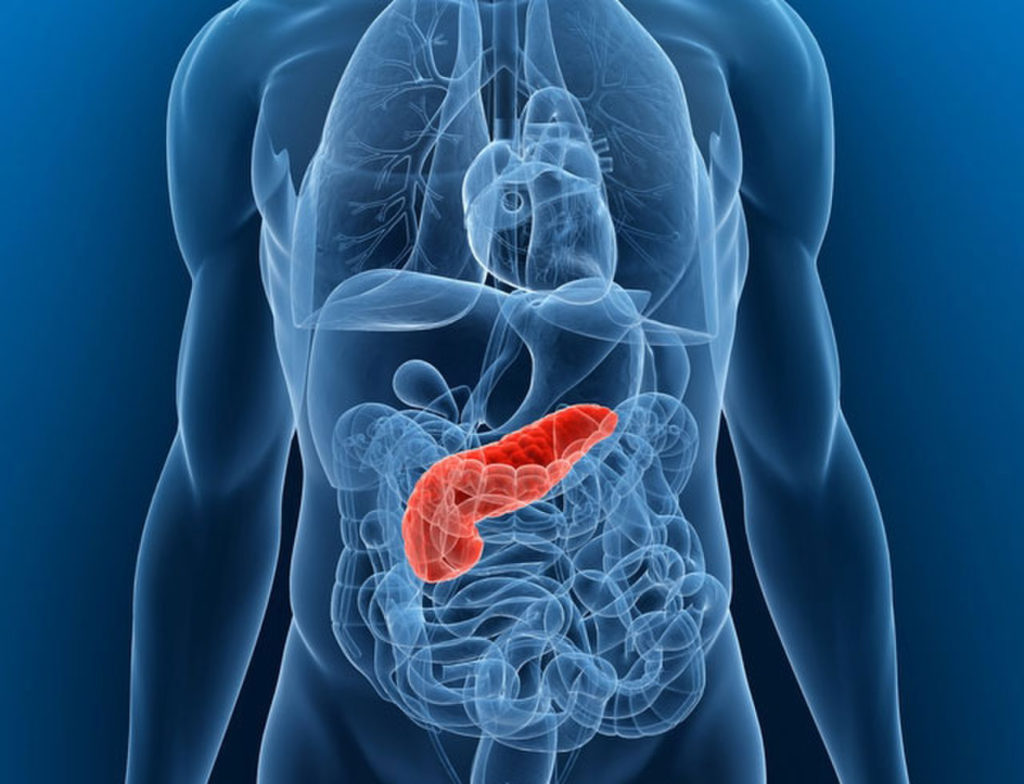6 Pancreatic Cancer Symptoms You Should Never Ignore
September 21 2018Signs of pancreatic cancer are hard to spot, and early detection is key to survival.

Chances are, you rarely give much thought to your pancreas, a glandular organ that helps your body digest food and convert it into energy. Located behind your stomach, the pancreas produces insulin and regulates your body’s hormones that maintain glucose (blood sugar) levels.
Pancreatic cancer is very aggressive. “It has a high likelihood of spread, or metastasis, to other organs in the body,” says Neil Woody, MD, oncologist at the Cleveland Clinic. The five-year survival rate is only 8.5 percent.
Pancreatic cancer has been diagnosed at an increase of .5 percent a year for more than a decade. Part of that is due to increased detection, Dr. Lee says, but lifestyle factors may be playing a role as well. Increases in diabetes and obesity—two major risk factors for pancreatic cancer—may also be contributing to the rise in pancreatic cancer cases.
Signs of pancreatic cancer
Pancreatic cancer is notoriously difficult to diagnose. Only about 10 percent of pancreatic cancers have a genetic predisposition, and good screenings for the general population have been difficult to establish, says Dr. Woody. “Tests with high likelihood of detecting pancreatic cancer, such as endoscopic ultrasound, are invasive, costly, and may carry risks of complications that outweigh their use as screening tests for the average person,” he explains.
What’s more, pancreatic cancer is tough to spot early, and many of the symptoms can be caused by other conditions. Plus, people usually have no symptoms until the cancer has spread to other organs.
Still, if you are experiencing any of these warning signs, it’s worth making an appointment with your doctor.
1. New onset of diabetes, especially when you have no major risk factors
“When people with no risk factors for diabetes (no family history, good diet, thin body type) develop new onset diabetes, or who have a history of well controlled diabetes suddenly find that it becomes difficult to control, it’s reasonable to evaluate why the pancreas may not be functioning as well,” says Dr. Lee.

2. Abdominal pain
“The pancreas sits close to a bundle of blood vessels and nerves called the celiac plexus that can cause pain and nerve irritation,” says Dr. Lee. But the pain is usually pretty encompassing of your abdomen.
“Patients feel pain from the epigastrium (the area just under the sternum) through to their back. Imagine a tire hiked up right under your chest and around your abdomen,” says Kim Reiss-Binder, MD, an oncologist specialising in pancreatic cancer at the University of Pennsylvania.
3. Unexplained blood clots
“Patients with pancreas cancer are particularly prone to blood clots,” says Dr. Lee.
While the exact cause is not known, it is believed that cancer cells reduce the proteins the body uses to prevent blood clots.
“For people who do not have a reason for the development of a clot—a recent major surgery, trauma (like a car accident), hospitalisation, or prolonged period where you are laying still, or a hereditary predisposition to clotting—we recommend making sure you are up to date on your cancer screening and to check in with your doctor about any other symptoms that may help to identify the source of the clotting abnormality,” says Dr. Lee.
4. Diarrhoea and floating stools
“The pancreas does not just produce insulin; it also produces pancreatic enzymes that help break down fat,” says Dr. Lee. “If there is a blockage in the output of pancreatic enzymes, such as a tumour developing in the pancreas, then fat is not digested as well.”
This comes out as foul-smelling “fatty” stools that float to the top of the toilet bowl, and may come many times per day shortly after eating fattier meals.
5. Jaundice (yellowing of skin)
The pancreas is located close to the liver, which produces bile. If a tumour prevents the bile ducts from draining bile appropriately, people may develop elevated levels of bilirubin in their body, which translates into jaundice, or a yellowing of the skin. “This is usually best seen in the white of the eyes, and can also lead to itching all over the body, light coloured stools, and darkened urine,” says Dr. Lee.
6. Unexplained weight loss and change in eating patterns
If you experience a loss of appetite or feel full after eating very little, this also may be a sign of pancreatic cancer. “The pancreas is nestled right near the small intestine near the first part of the small intestine, and tumours can cause food to back up or not get through to the small intestine as quickly,” says Dr. Reiss-Binder.
Sourced from Prevention.

